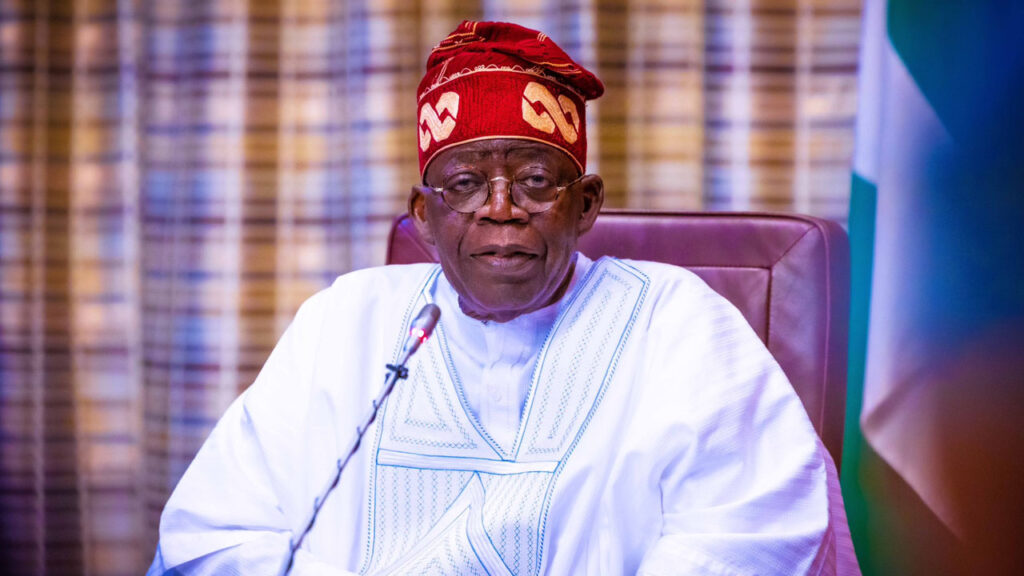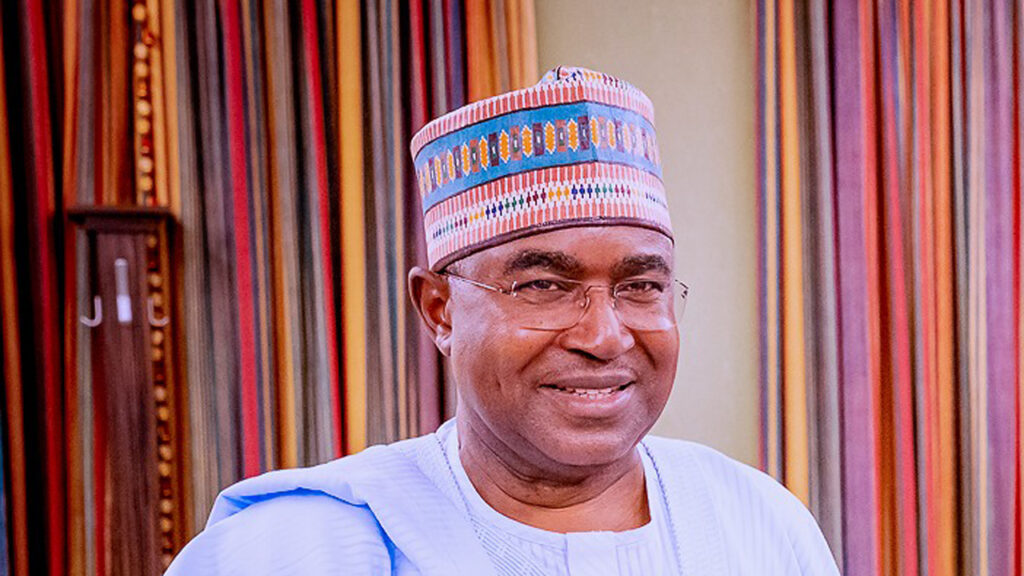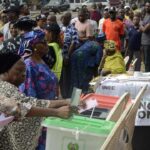
• Nigeria Needs ‘Data-chaos Engineering’ Model —- Uwaje
• Computer Experts Seek Professionals As Technology Observers At Polls
• INEC Advised To Co-opt IT Professionals, Work With NCC, NITDA
• Stress Test On Facilities Recommended Going Forward
Mixed reactions have continued to trail the Independent National Electoral Commission’s (INEC) move to reconfigure the Bimodal Voter Accreditation System (BVAS) ahead of the Governorship and State Assemblies elections, which was shifted from March 11 to 18.
Recall that the Presidential Election Petition Court (PEPC), sitting at the Court of Appeal in Abuja, had last Wednesday, given INEC the nod to reconfigure the BVAS it used for the presidential and National Assembly elections, owing to several technical issues that emanated from the election.
BVAS is a tech device that allows for the identification and accreditation of voters through fingerprints and facial recognition. IReV is an online portal, where results are uploaded directly from the polling unit, transmitted and made available for public monitoring.
IReV allows members of the public to create personal accounts and monitor uploaded results, increasing the transparency and integrity of the electoral process.
Indeed, against all projections and assurances by the INEC that the Presidential and National Assembly elections would be hitch free, it came out that there were flaws, which many people have blamed the election umpire for.
In 2021, INEC deployed BVAS as a means of overcoming the challenge of over-voting by accrediting voters through fingerprint, iris and facial recognition and eliminating manual voter identification and accreditation. At the time, BVAS was replacing card readers, which had failed to read permanent voter’s cards properly.
Justifying the need for the technology in one of his several meetings ahead of the elections, the INEC Chairman, Prof. Mahmood Yakubu, had said BVAS would be used to capture the results of the elections and upload them to the portal in PDF format.
He said, “The BVAS confirms that the cards issued by the commission and presented by the voter are genuine and the voter is authenticated using the fingerprint and where it failed, the facial.
“Where both fail, the voter can’t vote. That is a matter of law. After the process is completed at the polling unit, the image of the polling unit result will be taken by the BVAS and uploaded into what we call the INEC Result Viewing Portal where citizens can see polling unit level results as the processes are completed at polling unit level.”
Against Prof. Mahmood assurances and confidence reposed in the BVAS technology, it failed at the last elections.
Several INEC officials and adhoc staff at several polling units during the election claimed that the BVAS device was either not allowing them to upload the results or the network was bad.
To avoid future occurrence of this, INEC has been given the nod to reconfigure the BVAS machine ahead of the March 18 Governorship and State House of Assembly elections.
IT experts, who spoke with The Guardian on this development, however, claimed that INEC had worked in silo and didn’t reach out to tech experts before the election.
The Chairman of Council, Computer Professional Registration Council of Nigeria (CPN), Kola Jagun, said he believes INEC has competent hands in the ICT department that can handle things of such, disclosing that the head of the IT department is a member of CPN and fellow of Nigeria Computer Society (NCS) and most of the senior staff of the department are professional members of CPN.
On INEC chairman saying there were technical glitches, Jagun, who said his views are personal and not that of CPN for now, said he believes these challenges normally occur occasionally, especially when you have large volume of data to process with many people wanting to access the data base at the same time.
“I am not too surprised, the only thing INEC should have done was to have made solid arrangements for such glitches. May be lots of stress test were not carried out on the system to know if the capacity was there.
“I remembered that some tests were carried out during the governorship elections in Osun and Ekiti states. Though, we cannot compare those elections with the general elections. In this particular election, we are talking about over 170,000 polling units trying to access the server at the same time unlike those two governorship elections, where it was just within two states and fewer polling units. I believe that INEC has competent staff that can do this job locally. I assume it is one of those things that happen in IT, especially when you did not carry out enough stress test. So, technical glitches are bound to occur. I learnt that over 96 per cent of the results have now been uploaded. May be network capacity was over stretched at the time of upload last Saturday,” he stated.
Speaking on reconfiguring the BVAS, the CPN chairman said to do a backup usually takes time. “You know, you will have to do a physical backup, take the machine somewhere and work on them. It will be like you are making a replica of that system. So, it actually takes time. The request for more time, I think is okay, because when there is a demand by someone in the future for BVAS data, INEC will give you exactly what was stored in it.
“Reason I supported the request for more time from INEC so that they can do a proper backup of all BVAS machine and ensure they are okay.”
According to him, it is not as if the BVAS machine cannot be configured as it is and used for the next election, “but now that people are going to court, INEC don’t want to give chances to all the records being muddled up. I believe that was reason for the two weeks gap between the presidential election and the governorship elections so that they can do adequate backups. In between, the court gave an order that nobody should tamper with any of the system. I think it is a normal process not that they are trying to do anything bad.
“Let me give you an example, CPN did a project with JAMB. CPN professionals were the one that went round to check the CCTV and others about a year back and that took lot of time… to even move the data to the server was a huge task. It was not something that can just be done anyhow, though not like BVAS. What I am trying to explain is that it takes a lot of time to get those things done, especially when it comes to moving bulky data from one point to another. So, I think INEC is just trying to be careful so that they do not corrupt the data and to avoid them been challenged at the court of law.”
Making reference to what happened in Osun State where there were two sets of Server Information given out, one from PDP and another from APC, Jagun said this might be due to the fact that the servers were not updated at the same time or the backups were not done at the same time and properly. According to him, to avoid a repeat of such errors, that is why they have asked for more time to reconfigure the BVAS and so, when anybody comes for the result, it will be the same. “Remember Labour Party, APC and PDP all have court orders to inspect the BVAS records, so, to avoid different results from all the inspections tomorrow or in the future, reason for the time to get that done.”
Jagun said INEC has CPN and NCS professionals that are very competent working there, so, you can give it to them to do the right thing, this is not ruling out human errors.
According to him, going by what he has seen so far, INEC has improved a lot because the BVAS accreditation model has reduced the number of illegal voters “because when I went to vote, once the BVAS machine accredits you, it shows you the number you are. For example, I was number 29 in my polling booth, and it showed that I was number 29 accredited person and it showed the number of registered voters in that unit. The BVAS machine came with enough information to guide people at the process of verifications.
“This is the reason the INEC chairman said go to court, because he has done his bid by capturing all needed information. So, those aggrieved can go to court and the needed information will be made available to them.
“The system is there, though I am not saying full proof, but the chances are there that it will reduce rigging to the barest minimum. What the BVAS machine is also doing is to get pictorial evidence, where it captures the image of the result sheet.”
Offering his suggestions, Jagun said when the images are captured, they should be entered directly into the BVAS machine because it becomes easier to transmit the results than transmitting the image because it is heavier and takes more byte unlike when it is just figures.
Going forward, he recommended that CPN Professionals should be co-opted as technology observers at every polling units in future elections.
He said the professionals are not there to operate machines but to observe the way things are done and would be able to assist INEC officials at polling units if they have any difficulty with the machines.
On his part, the Head of Operations, Association of Licensed Telecommunications Operators of Nigeria (ALTON), Gbolahan Awonuga, said because of the enormous work involved in configuring, it could take weeks to complete, especially as it depends on how many BVAS to be reconfigured, adding that locations are equally different.
Awonuga noted that some people have said that BVAS are android, “just like the phone we use. So, to configure BVAS requires lot of technicalities….you need to update the software, hardware and ensure that the backend too is responding as it should be. It is definitely going to take time. So, it could take the numbers of days required by INEC or even more because it goes beyond just the configuration of system.”
Taken a swipe at INEC, the ALTON chief blamed INEC for not reaching out to technology experts, especially outside its jurisdiction.
“The use of BVAS is technical and technology based. In the body of INEC, there is supposed to be an IT specialist (from outside) there that will advise adequately well. These are part of the issues. They don’t have IT specialist that can advise them. All they have done are were done in house. Most of them are professors (academics). They are using academic eyes to look at technical issues. They should have gone to the Nigerian Communications Commission (NCC) or National Information Technology Development Association (NITDA), and others to seek for specialists that can assist them on the task before them as it relates to technology.
“There are bound to be problems! Before the election proper, ALTON went to the Minister of Communications and Digital Economy to say that on election day, let there be no construction work so that there won’t be fibre cuts or other damages that could affect network quality and this was adhere to throughout the country. INEC need to approach the professionals to seek help. One of directors either in NCC or NITDA should have been seconded to INEC to help them on the technicalities.”
According to the Science, Technology and Innovation (STI) Policy Advisor and Founder, Jidaw Systems, Jide Awe, said the performance of the BVAS and IReV technologies was mixed. He said these technologies had some uncomfortable lapses in the electoral process, indicating progress on some fronts as well as a deficiency of testing, training, and coordination with relevant stakeholders, including election officials, technology experts, vendors, and security experts.
He said BVAS was successful in verifying and authenticating voters’ identities, ensuring that only eligible voters were allowed to cast their votes, and preventing any attempt at double voting or voter impersonation, adding that BVAS largely met its objective of improving the accreditation and voting process, “however, some INEC personnel faced challenges in using the BVAS efficiently and effectively.”
Awe said IReV was designed as a platform to provide real-time access to election results to the public, however, voters faced challenges in tracking and monitoring the election’s progress and viewing the results as they came in.
“This undoubtedly reduced transparency in the electoral process and could affect public confidence in the electoral process and voter participation, leading to confusion or mistrust among the public,” he stated.
According to him, the transmission of results was the major challenge, saying it appears that the training, testing, and validating of this aspect before the election were inadequate. He said there were also personnel and logistics issues. “For large-scale exercises and projects such as this, top-notch project management is required,” Awe noted.
On INEC’s decision to reconfigure the BVAS, the Jidaw System founder said this depends on the electoral umpire’s assessment of the specific circumstances and requirements.
He said the time needed to reconfigure the technologies depend on the extent of the changes required and the complexity of the systems involved. “For instance, will it involve upgrading or replacing hardware components? The technologies may need to be more robust and scalable to handle the increased volume of data and traffic.
“The changes may require extensive testing and validation to ensure that they are effective and reliable and do not introduce new concerns. It may call for coordination between multiple stakeholders, including election officials, technology experts and vendors, and security experts. The logistics element is also to be considered,” Awe noted.
According to him, it is essential to ensure that any modifications are thoroughly tested and validated before deploying them to avoid any unintended consequences. INEC needs to work with all stakeholders involved in the electoral process to ensure seamless re-configuration, and the election process is transparent, reliable, and credible.
To the Chairman, Mobile Software Nigeria, Chris Uwaje, said the whole issue centres on data, stressing that perhaps the most important challenge before the nation is to recognise and admit that the country is confronted with data chaos, which requires professional data chaos-to deliver the assurances of a trustworthy and acceptable solutions.
Speaking on the reconfiguring of the BVAS, Uwaje said one week represents about six digital months, stressing that digital clock is different from analogue timing! “What I read from the INEC submission is that there were no adequate digital-disaster-recovery plan. How long does it take to reconfigure BVAS and given 24/7 hours digital work state-of-mind, reconfiguring 176,000 BVAS? shouldn’t be a rocket science. I am sure they just remembered to factor in logistics-of things.”












